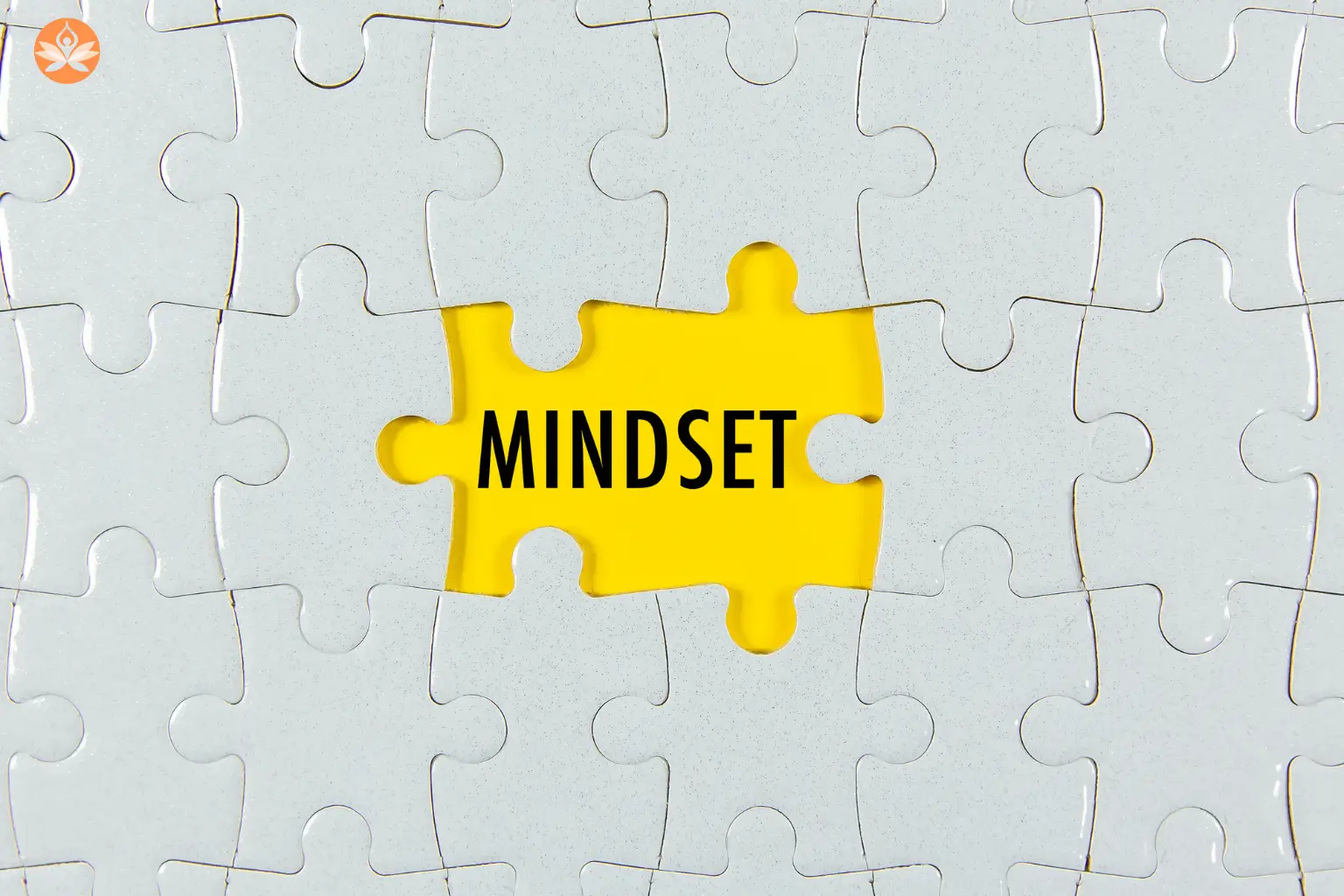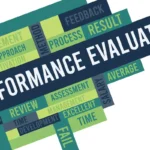Embracing the 7 Mindsets for Personal and Professional Growth
The right mindset is transformative. It helps us achieve personal development and success. Specific mental frameworks can alter our perceptions, letting us unlock our minds’ full potential. Look at seven powerful mental models that can trigger profound life transformations.
Growth Mindset
The heart of personal growth is a growth mentality. This mindset sees challenges as opportunities to learn and grow. Instead of seeing skills as a fixed trait, those with a growth mindset believe abilities can be developed with perseverance and dedication. They view the failures as steps to success. Not as evidence of incompetence.
To cultivate a growth mindset:
- Embrace challenges as a learning experience
- Consider effort as a pathway toward mastery
- Learn from critique and feedback
- Find inspiration in others’ success
Abundance Mindset
The belief in abundance is rooted in the conviction that plenty of opportunities and resources exist for all. This is a way of countering the notion of scarcity. The fear of scarcity is often a cause for competition and hoarding. People with optimism approach life positively. They exhibit kindness and creativity.
Critical aspects of an abundance mindset include:
- focusing on the possibilities instead of the limits
- Remaining grateful for what you can
- sharing knowledge and resources openly
- Celebrating others’ successes
Resilience Mindset
Resilience refers to the ability to bounce back after challenges and to adapt to changes. A mindset that is based on resilience helps people tackle challenges head-on. It encourages the process of learning from setbacks. This allows people to become more resilient. This mental framework is vital to long-term success and well-being.
To develop a resilience mindset:
- Cultivate a support network
- Do self-care and managing stress
- Reframe negative situations positively
- Make realistic and achievable goals. Reward small successes
Curiosity Mindset
The curiosity mindset is the key to ongoing learning and personal growth. It is about approaching life with curiosity. Being curious and looking for new experiences are essential. This mental attitude keeps the mind engaged, stimulates creativity, and improves problem-solving skills.
Cultivate curiosity by:
- Questions to ask “why” and “how” questions
- Explores a variety of subjects and passions
- Accepting new perspectives and experiences
- Refuting assumptions and beliefs
Mindfulness Mindset
Mindfulness is about being aware and present in every moment. It is about observing thoughts and feelings without judgment. This reduces stress, improves focus, and increases emotional intelligence.
Practices to develop a mindfulness mindset:
- Regular meditation or breathing exercises
- Self-reflection and gratitude training
- Mindful eating, mindful dining and exercise
- Limiting distraction and multitasking
Solution-Oriented Mindset
A solution-oriented mindset focuses on identifying solutions rather than dwelling on issues. This approach encourages creativity and positivity when facing challenges, transforming challenges into opportunities to innovate and grow.
To cultivate a solution-oriented mindset:
- Reframe issues as challenges to be overcome
- Break down complicated issues into manageable chunks
- Brainstorm several options before selecting one
- Learn from previous successes and mistakes
Collaborative Mindset
A collaborative mentality recognizes the value of working in tandem to achieve the same goals. It appreciates the diversity of perspectives. It promotes teamwork and taps into shared strengths. This attitude is vital for our increasingly connected world. It encourages collaboration and growth.
Critical aspects of a collaborative mindset include:
- Listening and communication open
- Values diverse views and experiences
- Credit sharing and celebrating team accomplishments
- Establishing and maintaining relationships
Our seven daily habits could result in extraordinary personal growth and success. They can help us approach life’s challenges with purpose and positivity. When we are conscious about cultivating these mindsets, we can unlock our potential and boost our resilience. We can live happier and more fulfilled lives.
Remember. The process of developing these mindsets is not a goal. It takes consistent repetition, self-reflection and leaving our familiar areas. Adopting these robust mental structures makes us better prepared to face life’s challenges. We can take advantage of opportunities and accomplish our goals. The strength of these seven mindsets is not in their strengths. It is in the way they complement and strengthen each other. This leads to an integrated approach to personal development and achievement.
Cultivating a Growth Mindset in Daily Life
Embracing the Power of Perspective
The way we tackle opportunities and challenges can profoundly affect our personal growth and the success we achieve. When we cultivate a growth mindset, we are able to see new possibilities and continue to advance. This empowering mental frame of mind lets us view failures as learning opportunities. We can embrace the journey of self-development.
One of the most important aspects of fostering a growth mentality is understanding that our talents and abilities are not fixed attributes. Instead, they are developed through determination to work, perseverance and a willingness to grow. This shift in perspective enables us to tackle new tasks with a sense of humor. Believing that every encounter is a part of our personal development.
Strategies for Developing a Growth Mindset
To integrate growth-oriented thinking into our lives, we can employ a variety of strategies:
- Take advantage of the challenges as an opportunity to grow
- Take mistakes as learning experiences
- Inculcate a love of studying and improving yourself.
- Keep going in the face of challenges and setbacks
- Find constructive feedback. Utilize it to make improvements
- Find inspiration in the achievements of other people
- Replace self-talk that is negative with positive self-talk
If we consistently apply these strategies, we can change our thought patterns and create a more resilient and growth-oriented mentality.
The Impact of Language on Mindset
The words we employ throughout our inner dialogue and in our external communications play a vital role in determining our mental state. When we use words that promote growth, we can help reinforce positive thought patterns. This allows us to be more flexible. View
Fixed vs. Growth Mindset Language
Fixed MindsetGrowth Mindset
It’s difficult for me. I’m not great in this area, but I can get better with practice.
This is way too difficult. It’s a challenge, but I’m able to solve it.
I’m giving up. I’ll look for a new approach.
I made a mistake. Making mistakes helps me grow and learn.
I’m not creative. I can develop my creative skills.
We can gradually change our outlook and approach to everyday issues by replacing an outdated mindset with more sustainable alternatives.
Nurturing Growth in Various Aspects of Life
The growth mindset applies to various areas of life and can lead to a holistic approach to personal growth. Let’s consider ways we can foster this mindset across various regions.
Professional Growth
Adopting a growth mindset at work can increase productivity, innovation, and the ability to advance in your career. When we view every job or project as a chance to improve and learn, we can be more flexible and resilient to workplace challenges.
Personal Relationships
Applying a growth mindset to our relationships enables us to view conflict and miscommunication as opportunities for mutual understanding and growth. This mindset helps build empathy, improve communication, and usually results in more powerful connections with others.
Health and Fitness
Regarding our physical health, having a positive mindset helps us stay focused on our health goals. Focusing on the process rather than the end goal makes it easier to stick to healthy lifestyles. We will be able to overcommit to setbacks much more quickly.
Learning and Skill Development
Adopting a growth-oriented mindset in our hobbies and education allows us to tackle new skills and subjects enthusiastically and determinedly. This could lead to lifelong learning, and it helps us improve our self-awareness continuously.
Overcoming Obstacles to Growth
While fostering a growth attitude is beneficial, it can be more complex. It is possible to encounter internal resistance. Additionally, external obstacles can hinder our growth. Common obstacles include:
- Fear of failing or judging
- Inseminated fixed mindset beliefs
- Insufficient assistance from other sources
- Discontent with the process that is undergoing change
To overcome challenges, it is essential to cultivate self-compassion and patience. Be aware that developing an attitude of growth is the process of growing. Celebrate small victories. Get support from other like-minded people. Continuously reinforce positive thinking patterns.
By embracing the principles of a growth mindset in our everyday lives, we can open our minds to endless possibilities and constant improvement. This mindset is powerful and allows us to see challenges as opportunities. Failures can be learning experiences. Personal growth is transformed into an ongoing adventure. Developing this mindset makes us better prepared to face life’s challenges and downs. We accomplish our goals and realize our potential to the fullest extent.
Overcoming Limiting Beliefs Using Positive Thinking
Unlocking your full potential often requires a radical change in perspective. We all have certain beliefs that prevent us from achieving our goals and living the best life. Self-imposed limitations are deeply ingrained. However, with positive thinking, we can free ourselves and take on a more powerful perspective.
The Impact of Limiting Beliefs
Limiting beliefs can be described as invisible chains that hinder growth and advancement. They usually stem from previous experiences. They may also arise from negative social beliefs or self-talk. They can manifest in different ways, like:
- Doubts and a lack of confidence
- Fear of success or failure
- Impostor syndrome
- Negative self-image
- Refusal to alter
Recognizing patterns is the first step to overcoming them. Once we identify the beliefs that limit us, we can challenge and change them to an optimistic perspective.
Harnessing Power of Positive Thinking
Positive thinking is a powerful method to change our mental outlook. It can help overcome negative thoughts. It requires making a conscious decision to focus on positive thoughts and hopes. This is possible even in the most difficult of circumstances. This can result in multiple benefits that include:
- Greater flexibility and resilience
- Healthier physical and mental health
- Improved problem-solving abilities
- Higher overall satisfaction with life
- Better connections and social networks
With a positive outlook, gradually replacing negative views with more positive ones is possible. This opens new opportunities and possibilities.
Strategies for Overcoming Limiting Beliefs
- Awareness and Identification
The first step to overcoming the negative beliefs that limit you is to be aware of the beliefs. Spend some time reflecting on your thoughts and behavior. Look for patterns of self-doubt and negative self-talk. Keep a journal to record your thoughts. Recognize their roots.
- Challenge and Reframe
After you’ve identified the beliefs that limit you, confront them by asking questions like:
- Does this belief rest on fact or the assumption?
- What evidence disproves this assertion?
- How can this conviction benefit me?
Change these beliefs into positive, encouraging assertions. For instance, “I’m not good enough” could be changed to “I am continuously learning and improving” or “I strive to grow each day.” This change gives you a more positive viewpoint. It helps to accept oneself and promotes personal development.
- Practice Positive Affirmations
The regular repetition of positive affirmations can assist in rewiring brains and establishing belief systems that are empowering. Make a list of affirmations that can counter negative beliefs. Repetition them every day. For example:
- “I can achieve my goals. “
- “I need success and joy.. “
- “I embrace challenges as opportunities for growth.”
- Visualize Success
Visualization is a powerful method to break through the limitations of your beliefs. Every day, you can imagine achieving your goals and living a life you’d like to live. This can increase motivation and confidence while also aiding in reprogramming your subconscious mind.
- Create a Positive Space for Yourself
The people and places that we live in can profoundly influence our mindset. Find positive, supportive people who can inspire and encourage you. Avoid your exposure to harmful influences. Create a safe and supportive environment that promotes confidence and growth
- Embrace Failure as a Learning Opportunity
Many of the beliefs that limit you stem from the fear of failing. Change your perception of failure and view it as an opportunity to learn rather than a reflection of your value. Be proud of your accomplishments and the lessons you learned from setbacks. Please make use of them as stepping stones to the success you desire.
- Practice Gratitude
Cultivating gratitude can help you shift your focus to abundance instead of limitations. Recognizing the positive aspects of life can improve spirits, increase resilience, and lead to a more optimistic perspective.
The Journey of Personal Growth
Overcoming limiting beliefs and adopting positive thoughts is an ongoing process of self-discovery and personal growth. It takes patience, persistence and self-compassion. Keep in mind that changing requires time. It is normal to experience setbacks in this process.
If you keep challenging your beliefs that limit you and develop a positive mental attitude, you’ll see significant improvement in different aspects of your life. Your relationships could improve, and they will be more fulfilling. Your job prospects could grow. You might be more willing to explore opportunities and experiences that are new to you.
Committing yourself to this transformational journey improves your life and uplifts those around you. Your enthusiasm and renewed confidence can ripple outwards, inspiring others to transcend their own limitations and adopt a more positive mindset.
The power to conquer the limitations of your beliefs is within the individual. You can overcome self-imposed limitations by harnessing the power of positive thought and applying these strategies. Discover your true potential. Begin this journey of discovery and growth. Be amazed by the new possibilities that unfold before your eyes.
Embracing Challenges: Resilience Mindset
To face life’s challenges head-on requires a unique perspective above simple optimism. It’s about developing a mindset that thrives in the face of challenges. Don’t view them as roadblocks but as opportunities to grow and self-improvement. This approach to resilience empowers people to manage life’s challenges and downs with grace and perseverance.
The Power of Embracing Adversity
If we change our perspective of problems, we discover our own potential. Instead of avoiding difficult situations, people who adopt an attitude of resilience are constantly seeking opportunities. They realize every difficulty is an opportunity to adjust and improve their skills.
Think about the following advantages of embracing the challenges:
- Improved problem-solving abilities
- Enhances emotional intelligence
- Greater adaptability in various situations
- Better stress management
- Boosted self-confidence
Through constant effort to overcome obstacles, individuals build a robust strategy for dealing with future challenges. This continuous growth and learning process forms the basis of the resilience mindset.
Cultivating Resilience in Daily Life
It’s not an overnight process. It takes conscious work and practice. Here are a few strategies for fostering this empowering mental mindset:
Reframe Negative Experiences
Instead of focusing on the setbacks, look for opportunities and lessons within them. Consider “What can I learn from this situation?” or “How might this challenge help me grow?” This change in perspective can turn even the most daunting challenges into valuable learning experiences.
Set Challenging Goals
You must leave your comfort zone by setting challenging but achievable targets. Always tackle complex tasks. You’ll build confidence in your ability to face challenges. Make sure you celebrate small victories throughout the process. This will help reinforce the positive aspects of overcoming challenges.
Practice Self-Compassion
Be gentle with yourself when you encounter difficulties. Be aware that setbacks are a natural element of every journey. They aren’t a defining factor in your capabilities or worthiness. Treat yourself with the same respect and support you’d give someone else in similar circumstances.
The Role of Mindfulness in Resilience
Regular mindfulness practices within your everyday routine can dramatically increase your resilience mentality. When you are aware and present, you’re more prepared to react to situations with a thoughtful approach. This is far more efficient than merely reacting. Think about these mindfulness practices.
- Meditation sessions every day
- Exercises for Mindful Breathing
- Gratitude journaling
- Body scan practices
These activities aid in developing calm and focus, which helps one approach issues with a balanced approach.
Building a Support Network
Although personal resilience is essential, it’s equally important to surround yourself with positive people who support your development. A strong support network can help you:
- Emotional encouragement during a tough time
- A fresh perspective on challenging situations
- Practical assistance whenever required
- Opportunities for sharing learning and development
Develop relationships with those with the same mindset you wish to attain. Influence from them can be vital in determining your attitude towards challenges.
Embracing Failure as a Stepping Stone
The most potent feature of a resilient mindset is its ability to look at failures not as a point of no return but as an essential element of learning. Successful people often point to failures as the primary reason for their final achievements. By reframing failure, you can:
- Reducing fear about taking chances
- Enhance willingness to experiment with new ideas
- Develop growth-oriented perspective
- Create resilience through recurrent attempts
Keep in mind that every setback contains the seeds of success to come. If you can embrace this approach, it transforms challenges into opportunities, encouraging development and creativity.
The Neuroscience of Resilience
Recent scientific research has shed light on the neurological basis of resilience. Studies have shown that those who are resilient exhibit:
- An increase in activity within the brain’s prefrontal cortex is associated with emotional regulation and problem-solving
- Better connection between the amygdala and prefrontal cortex. This helps to improve managing stress.
- More levels of neuropeptide Y, an ingredient that fights the adverse negative effects caused by stress hormones
Knowing the biology behind these processes will reinforce the importance of developing resilience and motivate people to develop this vital mental attitude.
Through adopting a mindset of resilience, individuals have the tools they need to succeed in an ever-changing world. This method helps to overcome current challenges. It also promotes the long-term growth of your professional and personal life. If you’re facing life’s inevitable downs and ups, be aware that every obstacle is an opportunity to increase your resilience. This will help you build an able, flexible, and prosperous future.
Transforming Your Career Through a Shift in Mindset
In today’s competitive and fast-paced job market, how you perceive yourself can affect your career direction. Changes in mental attitude are usually the key factor propelling people to achieve achievement. Adopting a mentality that is geared towards improvement and resilience can change not only your professional life but your entire well-being. Here’s how to make the most of your mindset to transform your career.
Understanding the Importance of Mindset
At its heart, mindset is the mentality that determines how we think about and react to various situations. Two kinds of mindsets can significantly influence your career.
- Fixed Mindset: People with this mindset believe their talents and abilities are fixed. They tend to avoid challenges and are easily discouraged, which limits their development.
- Growth Mindset: Contrary to people with an attitude of growth, they see obstacles as learning opportunities. They welcome feedback and remain positive despite setbacks, increasing their capabilities and abilities.
Adopting a Growth Mindset
The first step to changing your mindset is realizing your current mindset. Transitioning from a fixed mentality to a more growth-oriented mindset takes a focused effort. Here are a few practical ways to help you achieve this:
- Take on challenges. Please don’t shy away from challenging tasks; take them on head-on. This will build your resilience and allow you to develop essential capabilities.
- Learn from feedback. Be open to constructive criticism. The perspective of other people can provide insights you might not have considered.
- Celebrate Success: Recognize your accomplishments, regardless of how small. This helps reinforce positive behavior and increases confidence.
- Be Focused On the Process Become focused on the actions required to reach your goals instead of the result. This reduces stress and creates a more enjoyable experience.
Overcoming Limiting Beliefs
Limiting beliefs are usually the barriers that keep people behind in their careers. The beliefs that may be rooted in past experiences or from societal influences could alter your perspective of what’s feasible. Becoming aware of and challenging these beliefs can result in profound career shifts. Take note of the following suggestions:
- Recognize Your Limiting Beliefs Journaling is a powerful tool. Note down the beliefs that pop into your head regarding your abilities.
- Question Your Beliefs: For every limitation, consider its legitimacy. “Is this fact or opinion?” This can help to uncover the truth that will empower you.
- Replace them with positive thoughts. Replace negative thoughts with positive affirmations. For example, instead of thinking, “I’ll never be good enough,” tell yourself, “I am continually improving and learning.”
Cultivating an Adaptable Mindset
In an ever-changing world, being flexible is essential to long-term career success. To cultivate an adaptive mindset, you must open yourself to fresh ideas, new learning opportunities and the need to adapt. Here are some ways to develop adaptability
- Keep learning: Make it an ongoing endeavor. Participate in workshops, attend classes or read books that go beyond your expertise to broaden your knowledge of the field.
- Meet with diverse individuals. Meet people from different sectors and backgrounds. Diverse perspectives can stimulate creative thinking and ingenuity.
- Set Flexible Goals. While having clear objectives is crucial, it is also essential to allow adjustments. This will enable you to navigate unexpected obstacles.
Building Resilience
Resilience is the key to dealing with career changes and downs. Resilient people recover from setbacks and setbacks, gaining valuable lessons throughout the process. Here’s how to build your resilience:
- Prioritize your physical and mental health. Regular exercise, mindfulness and adequate rest will improve your overall health.
- Stay Connected. Be part of your network of support during challenging moments. Connecting with friends, colleagues, and mentors can offer support and encouragement.
- Review your previous experiences and consider how you have overcome prior obstacles. Remembering your past achievements will boost your confidence in your ability to deal with future challenges.
Based on these findings, changing your career by shifting your perspective isn’t just feasible but also an empowering journey that will uncover your potential. When you adopt practices that promote an open-minded and flexible mentality, you can embark on the path to a career that not only brings career success but also enriches personal growth. This comprehensive approach will ensure that you’re resilient and well-prepared to navigate the challenges of your job and thrive.
Conclusion
Learning and accepting the seven mentalities provides deep insight into professional and personal development. When we decide to adhere to these beliefs, we’re not simply changing our outlooks and perspectives; we’re fundamentally changing the way we live our lives. Every perspective has strengths and can transform our attitude toward problems and opportunities.
Life throws us many obstacles, and our attitude lies in how we deal with the challenges. A fixed mentality can cause us to view obstacles as obstacles, whereas an adaptive and growth-oriented perspective transforms difficulties into opportunities to progress. This isn’t an abstract concept. It’s a real-world system that allows us to face challenges in our personal or professional relationships or lives. Recognizing that setbacks are just a way to prepare to make comebacks, we can learn from our mistakes to enhance our experience.
Cultivating a positive attitude isn’t a single-time exercise; it’s a continuous routine that requires constant dedication and reflection. Simple methods can assist in this process. Strategies like gratitude journals, meditation exercises, mindfulness, and daily affirmations are great ways to improve our mental state. Each day offers the chance to establish goals and concentrate on those aspects of life that bring happiness instead of negative thoughts. For example, beginning your day with a few minutes of gratitude improves your mood and sets the tone for a productive day. By incorporating the above practices into our daily routines, we can gain the advantages of a positive and resilient attitude that can influence every aspect of our daily lives.
Additionally, the influence of our mindsets goes beyond our personal lives and affects our interactions with others. Mindset significantly influences our interpersonal styles and relationships. A positive, open-minded attitude promotes trust and respect and enables more intimate relationships with colleagues, friends, and family members. If we engage in conversations with compassion and an openness to be open, we build spaces that foster collaboration and innovation. Every relationship has growth potential, not just for us but for everyone else. When we embrace these attitudes and beliefs, we can inspire those around us to work towards their best self.
The world of work is continuously changing, and those striving to succeed must be flexible and adaptable. Changes in mindset can lead to opportunities and pathways. A learning mindset allows us to see challenges as opportunities to develop our professional skills. In transforming the fear of uncertainty with adventure, instead of being afraid, we can consider new opportunities or abilities that could otherwise be intimidating. For example, if you’re bored with your current job, Consider how a curious attitude can lead you to new possibilities. This is not just about personal satisfaction but also improves your professional life by creating domino effects that can motivate your colleagues and friends.
Furthermore, it’s essential to understand that these seven mentalities are interconnected. The act of embracing one can spur other people to act. A positive attitude can boost your resilience. This allows us to tackle problems head-on and change our relationships. The synergy between these mindsets provides a comprehensive framework supporting our growth process. Mindset isn’t just the set of values we follow; it’s a way to approach life that is constantly improving.
To truly tap into this power of seven mentalities, we need to regularly study and investigate how these concepts apply to our everyday lives. As we embrace our journey, we recognize that the perspectives we take influence not just our lives but the impression that we will leave. By looking at our views and adopting these perspectives as the foundational components in our professional and personal lives, we will become successful people, efficient leaders, caring friends, and inspiring leaders in our communities.
The most important thing to remember is that each of our mindsets is a part of our arsenal for growth. They allow us to not only cope with the challenges of life but also succeed in them. Suppose we seek immediate solutions to life’s challenges or longer-term changes in our work. In that case, these mindsets can help guide us toward fulfillment and more significant relationships with those around us.










